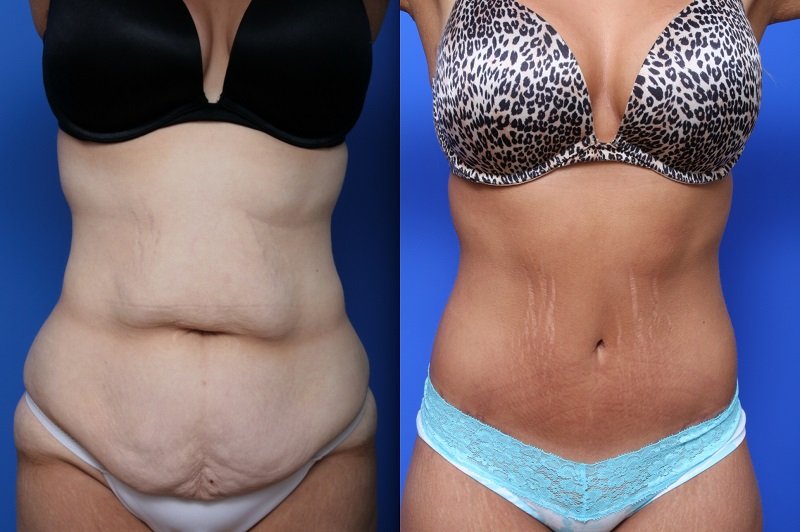Is Your Diet Right For You
The word diet is presumed to mean a specific food constriction to lose weight. However the real meaning of diet in nutritional terms means the sum of food consumed. The meaning of the word diet has been warped over the years giving a misconception. People have been dieting, in the sense of constricting to certain food guidelines, to lose weight for decades. However, specific diets started popping up and have become the new trend in weight lose. Over the last decade we have seen the rise of the Atkins diet, South beach diet, cabbage soup diet, cookie diet, and grapefruit diet and macrobiotic diet as well as companies such as Jenny Craig, Weight Watchers, Nutrisystem, and LA weight loss promoting their diet programs. Although it is possible to lose weight with any of these diets (by restricting calories) in actuality all of these diets are bunk.
Proper nutrition requires the proper consumption and absorption of vitamins, minerals, and energy from foods such as carbohydrates, proteins and fats. Therefore specific weight loss programs can either be harmful to your health or beneficial. A healthy diet is one that involves consuming nutrients in the appropriate amounts from all food groups and adequate amounts of water.
Dieting or going on a diet these days are typically not what you would term a healthy diet. Most diets restrict certain types of food, numbers of calories or regulate the ingestion of foods to achieve an overall goal of losing weight. For many who have tried dieting they know that it is possible to lose weight. However, most often the weight that you lose isn’t fat, it is water weight and once you go back to your normal food intake the weight comes back very easily. The diet is therefore a healthy diet should be combine with physical overall weight loss diets can be divided in to five categories, low fat, low carbohydrate, low calorie, very low calorie and detox diets. Statistically speaking there is no difference in the amount of weight loss overall the diet types. However in each diet type there is a loss of macronutrients required by the body.
Low fat diets cutout fat from ones diet. This diet was one of the original diet types because scientist and nutritionists alike thought that by removing fat from your diet you would lose more fat. However, the science of the body is better understood now and they know that other forms of food such as carbohydrates and sugars can cause increased fat in the body. With low fat diets the percentage of fat consume is reduced which also reduces ones caloric intake.
Low carbohydrate diets aim to cut out carbohydrates such as breads, flour, pasta, etc. Carbohydrates are easily converted in the body to be used as energy. However, if too many carbohydrates are consumed the leftover carbohydrates that aren’t used or stored as energy is converted to fat. Therefore by eliminating or restricting the intake of carbohydrates you can lose fat. Most low carbohydrate diets emphasize the consumption of protein to burn fat and build muscle. High protein and low carbohydrate consumption can cause the body to go into ketosis, where the body breaks down fat to be used for energy. Low carbohydrate diets include Atkins, and Protein power.
Low calorie diets restrict the amount of calories that one can consume each day. Normal low calorie diets reduce the calories by 500-1000 calories. Low calorie diets should not drop below 1200 calories, the normal amount of calories needed to maintain metabolic body function. Low calorie diets include the Dash diet, Diet to Go and Weight Watchers.
Very low calorie diets restrict calorie intake to 200-800 calories per day. Because of the very low calorie intake adverse side effects are associated with these diets. Protein consumption is normally maintained while carbohydrates and fats are reduced. Side effects of very low calorie diets include loss of lean muscle mass, electrolyte imbalances, decreased energy, confusion, loss of concentration and gout. Due to these side effects very low calorie diets are not recommended for general use.
Detox diets are used to eliminate toxins in the body by increasing fluid intake. Food is normally replaced with fluid or water for a short period of time. By increasing the amount of urine the body can’t absorb fat and toxins. Due to the decrease in calories and release of toxins, side effects such as headaches, diarrhea and fatigue are common for detox diets. The lemonade diet or master cleanse are common types of detox diets.
Before starting a diet regiment consult a physician to make sure your body is able to hand a restricted diet. If at any point during your diet you notice adverse side effects stop the diet and consult your doctor or nutritionist.
-
Does Acai Berry Work to Lose Weight?
You may start to doubt about the efficiency of acai berries following
-
Weight Loss and the Right Diet for You
Do a search for ‘weight loss’ or ‘diet’ on the
-
Weight Loss Surgery Produces Unexpected Drop in Heart Disease Risk
Stanford researchers find that gastric bypass surgery (weight loss sur
-
The Diet Solution Programme - Known For Increase Metabolism
Just what is the diet solution programme
-
Exercice To Have Body Fat Loss
Having a tire around your belly can be frustrating. Excess weight is n
-
8 Highly Effective Ways to Lose Weight Fast
Losing weight can be considered as a obs
- DON'T MISS
- Impressive Weight Loss Method And It Really Work
- Lose The Fat: Good Tips For Losing Weight
- How I Kept The Weight Off After Losing More Than 150 Pounds
- How to Lose Water Weight - The Most Effective Techniques!
- Events May Occur In The Lives Of People Who Have Had Weight Loss Surgery
- How To Apply A Rapid Weight Loss Plan And Get Results?
- Stunning Fat Loss Secret Revealed And Why It Works So Easily!
- These Foods Make Your Stress & Anxiety WORSE
- Top 10 Nutrition Tips for Fat Loss & Fitness
- Abolish Sugar Desires To Allow You To Remain On Your Diet




